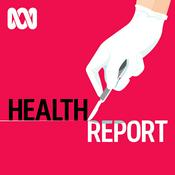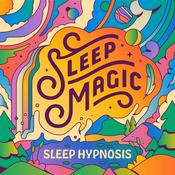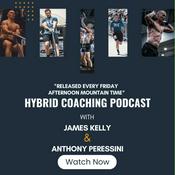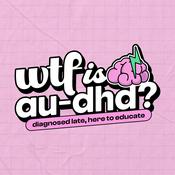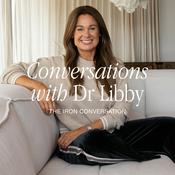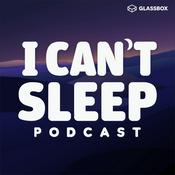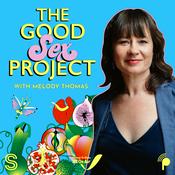307 episodes
- Parenting often feels like a high-stakes balancing act, especially when raising neurodivergent children. The pressure to get it right, advocate effectively, and manage dysregulation can leave parents frustrated and exhausted. But what if the key to being a calmer, more effective parent wasn't about doing more, but about treating yourself with more kindness?
Today, Emily sits down with Dr. Jen Ferris, a former child development professor and author of Parenting with Self-Compassion. They move beyond the fluffy idea of "self-care" to discuss self-compassion as a concrete tool for nervous system regulation. They also talk about how perfectionism and comparison fuel chronic stress, and why letting our kids see us make mistakes (and fix them) might actually be the best lesson in resilience we can teach them.
TAKEAWAYS
Self-compassion consists of three parts: self-kindness, mindfulness, and common humanity.
Perfectionism is often a response to uncertainty and a need for reassurance that they are on the right path.
Parents who admit mistakes and apologize model resilience, and show it's safe to be imperfect.
It's difficult to rationalize with a dysregulated child. Focus on safety and connection instead.
Replacing negative self-talk with self-compassion can change the emotional climate of the home.
The Educator Hub is now open, this week only! Come join us. The Hub is for educators and school administrators who want to improve the classroom learning environment for not only neurodivergent students, but for all students.
Dr. Jen Ferris is a former child development professor with years of experience teaching parenting and child development, as well as working directly with children of all ages. As a parent of two, including one neurodivergent child, she brings both professional expertise and lived experience to her work supporting families.
Her debut book, Parenting with Self-Compassion: 12 Ways to Improve Your Parenting While Being Kind to Yourself, offers practical strategies for communication, discipline, and connection, especially for parents of neurodivergent children. Dr. Jen emphasizes self-compassion as a powerful tool for staying calm, building stronger relationships, and feeling more confident in the parenting journey.
BACKGROUND READING
Jen's website, Jen's book, Instagram, Facebook, Threads
The Neurodiversity Podcast is on Facebook, Instagram, BlueSky, and you're invited to join our Facebook Group. For more information go to www.NeurodiversityPodcast.com.
If you'd like members of your organization, school district, or company to know more about the subjects discussed on our podcast, Emily Kircher-Morris provides keynote addresses, workshops, and training sessions worldwide, in-person or virtually. You can choose from a list of established presentations, or work with Emily to develop a custom talk to fit your unique situation. To learn more, visit our website. - Today we're popping into your feed with a special invitation for educators and school administrators who want to improve the classroom learning environment for not only neurodivergent students, but for all students.
Give the message a listen, and then click here to learn more about the Neurodiversity University Educator Hub. We hope you'll join us.
Our regular episode will be along Thursday, as usual. Thank you for your support. We couldn't do any of it without you.
Check out the Educator Hub! - Child-led support is often misunderstood. Some imagine it as a chaotic free-for-all where the child runs the show. Some worry it means abandoning all structure. In reality, a child-led approach is about moving from being a director to being a partner.
In this episode, Emily Kircher-Morris sits down with speech-language pathologist Nicole Casey to dismantle the compliance-based models of therapy that have dominated the field for decades. Nicole explains how shifting the focus from "fixing" speech to fostering authentic connection creates deeper buy-in and faster generalization of skills. They discuss Gestalt Language Processing (GLP), why we need to stop writing "80% accuracy" goals, and how using rubrics can revolutionize the way parents and educators track meaningful progress.
TAKEAWAYS
Child-led is an approach that centers the child's interests and experiences, removing arbitrary adult-directed rules (like "sit still") to prioritize safety, connection, and agency.
Speech is just one form of communication, but gestures, hand-leading, and AAC play major roles in communication.
Some children learn language in chunks or scripts tied to emotional context.
Goals based on 80% accuracy are arbitrary and often measure compliance rather than authentic communication.
Using rubrics allows teams to track the quality and autonomy of a skill (e.g., self-advocacy) across different contexts, offering a visual and qualitative way to see growth.
Before enforcing a direction, ask, "Does this rule actually serve the child, or is it just for my convenience?"
The Educator Hub opens the week of February 16! Go here for more info, and if you'd like, you can be alerted the minute it opens.
Nicole Casey, MS, CCC-SLP, is a speech-language pathologist, educator, and the founder of The Child-Led SLP and Child-Led Therapy Center. She is widely recognized for her work in shifting speech therapy away from compliance-based approaches and toward connection-first, neuroaffirming support for autistic children.
Nicole's approach empowers adults to follow the child's lead, honor all forms of communication, and focus on building authentic relationships as the foundation for meaningful progress. Through her online courses, membership community, and Let Them Lead podcast, she is helping parents and professionals reimagine what effective, compassionate therapy can truly look like.
BACKGROUND READING
Nicole's Facebook, Instagram, Let Them Lead podcast (via Apple Podcasts)
The Neurodiversity Podcast is on Facebook, Instagram, BlueSky, and you're invited to join our Facebook Group. For more information go to www.NeurodiversityPodcast.com.
If you'd like members of your organization, school district, or company to know more about the subjects discussed on our podcast, Emily Kircher-Morris provides keynote addresses, workshops, and training sessions worldwide, in-person or virtually. You can choose from a list of established presentations, or work with Emily to develop a custom talk to fit your unique situation. To learn more, visit our website. - This week, Emily Kircher-Morris sits down with Sol Smith, the founder of the NeuroSpicy Community and author of The Autistic's Guide to Self-Discovery. Sol brings two decades of education, and his lived experience as an Autistic, ADHD, and dyslexic individual, to the discussion.
They talk about the complex feelings of imposter syndrome that many neurodivergent adults face - the feeling that life is a stage play where everyone else got the script but you - and the difficulty of masking and unmasking. They also get into the science of how we think, including breaking down the difference between top-down and bottom-up processing, and the tricky world of meta-messages, which can often lead to misunderstandings among colleagues or family.
It's a great discussion on communication, identity, and the importance of finding your people.
TAKEAWAYS
Imposter syndrome often stems from feeling like you are performing a role rather than living authentically.
Unmasking is less about revealing a hidden self and more about resuming the development of your personality.
Top-down thinkers generalize based on concepts, while bottom-up thinkers build understanding from specific details.
Autistic individuals often miss implied "meta-messages" that neurotypical people rely on.
Asking for more context is a way to gain clarity, not a sign of defiance.
Predictable routines can act as a "neurotypical simulator" to save cognitive energy.
Therapists, register now for the continuing education course, Get It Done: How to Help Clients with ADHD (& Others) Improve Productivity. Dr. Ari Tuckman will join Emily for this APA and NBCC approved 1.5 hour continuing education training on Friday, February 6.
Sol Smith is the author of The Autistic's Guide to Self-Discovery and the founder of The Neurospicy Community, the largest support network for autistic and ADHD individuals worldwide. A certified autism specialist who is autistic, dyslexic, and has ADHD, Sol brings both personal insight and professional expertise to his work helping neurodivergent people build autonomy and self-understanding.
After more than 20 years as a college professor, Sol shifted his focus to coaching and advocacy, creating accessible education and support for the broader neurodivergent community. His engaging speaking style has earned him a global platform, with hundreds of thousands of followers on TikTok and invitations to lead neurodiversity seminars for major corporations. Sol lives in Southern California with his wife and four children.
BACKGROUND READING
The Autistic's Guide to Self-Discovery, Sol's website, TikTok, Instagram, Facebook, YouTube
The Neurodiversity Podcast is on Facebook, Instagram, BlueSky, and you're invited to join our Facebook Group. For more information go to www.NeurodiversityPodcast.com.
If you'd like members of your organization, school district, or company to know more about the subjects discussed on our podcast, Emily Kircher-Morris provides keynote addresses, workshops, and training sessions worldwide, in-person or virtually. You can choose from a list of established presentations, or work with Emily to develop a custom talk to fit your unique situation. To learn more, visit our website. - Why do certain student behaviors trigger an intense emotional reaction in us? According to Maria Munro-Schuster, it often has less to do with the child and more to do with our own history.
In this episode, Emily sits down with Maria, a licensed clinical professional counselor and author of the new book, The Empathetic Classroom: How a Mental Health Mindset Can Support Your Students and You, to discuss the gap between therapeutic insight and the reality of the classroom. They talk about the use of the term "Mental Health Mindset" to describe a way of being that prioritizes nervous system regulation over behavior management.
They also discuss complex topics like counter-transference (how our own past influences our reactions to students), and neuroception (how our bodies scan for safety), and provide guidance on how to set flexible boundaries that protect both the adult and the child.
TAKEAWAYS
Educators' own histories and emotional patterns can dictate their reactions to students.
Safety is a prerequisite for learning.
There's an important distinction between flexible and rigid boundaries.
While teachers are not therapists, they are the "first responders" to student emotions, therefore need the tools to handle that responsibility without burning out.
Therapists, register now for the continuing education course, Get It Done: How to Help Clients with ADHD (& Others) Improve Productivity. Dr. Ari Tuckman will join Emily for this APA and NBCC approved 1.5 hour continuing education training on Friday, February 6. Register before February 2 for an early-bird bonus as well.
Maria Munro-Schuster is a licensed clinical professional counselor and former K-12 and university teacher who spent more than a decade in the classroom before transitioning to mental health work. She practices at Mango Beetle Counseling in Bozeman, Montana, where she blends her background in teaching, writing, and psychology. She is the author of The Empathetic Classroom: How a Mental Health Mindset Can Support Your Students and You.
BACKGROUND READING
Maria's website, LinkedIn
The Neurodiversity Podcast is on Facebook, Instagram, BlueSky, and you're invited to join our Facebook Group. For more information go to www.NeurodiversityPodcast.com.
If you'd like members of your organization, school district, or company to know more about the subjects discussed on our podcast, Emily Kircher-Morris provides keynote addresses, workshops, and training sessions worldwide, in-person or virtually. You can choose from a list of established presentations, or work with Emily to develop a custom talk to fit your unique situation. To learn more, visit our website.
More Health & Wellness podcasts
Trending Health & Wellness podcasts
About Neurodiversity Podcast
The Neurodiversity Podcast talks with leaders in the fields of psychology, education, and beyond, about positively impacting neurodivergent people. Our goal is to reframe differences that were once considered disabilities or disorders, promote awareness of this unique population, and improve the lives of neurodivergent and high-ability people.
Podcast websiteListen to Neurodiversity Podcast, On Purpose with Jay Shetty and many other podcasts from around the world with the radio.net app
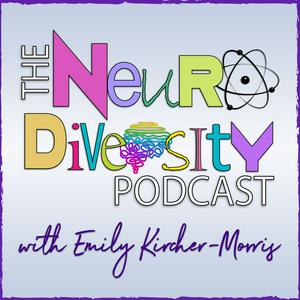
Get the free radio.net app
- Stations and podcasts to bookmark
- Stream via Wi-Fi or Bluetooth
- Supports Carplay & Android Auto
- Many other app features
Get the free radio.net app
- Stations and podcasts to bookmark
- Stream via Wi-Fi or Bluetooth
- Supports Carplay & Android Auto
- Many other app features


Neurodiversity Podcast
Scan code,
download the app,
start listening.
download the app,
start listening.





